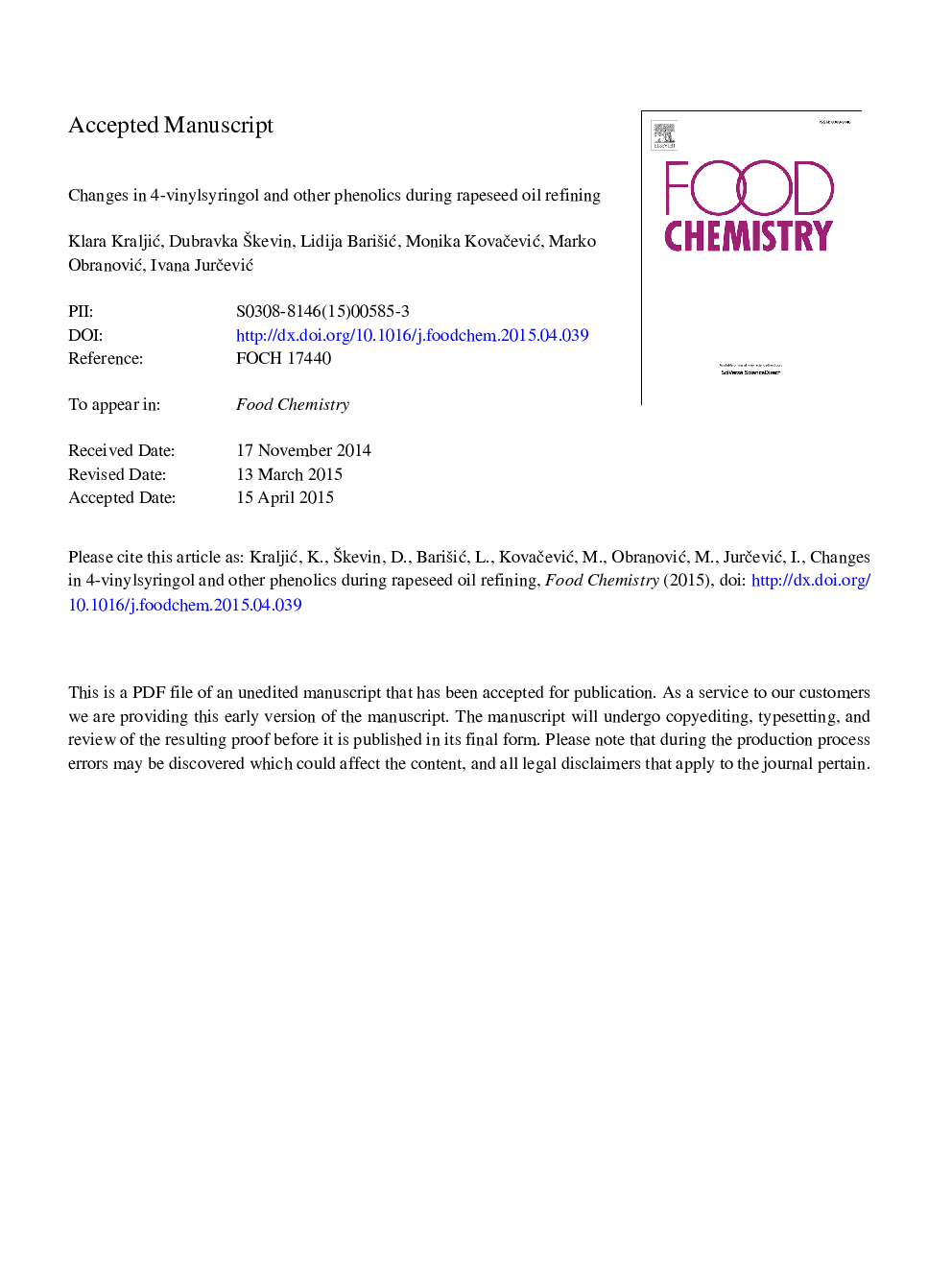| Article ID | Journal | Published Year | Pages | File Type |
|---|---|---|---|---|
| 7591015 | Food Chemistry | 2015 | 31 Pages |
Abstract
The aim of the present study was to examine changes in phenolic compounds during refining of rapeseed oil. In crude rapeseed oil, 4-vinylsyringol (canolol) is the dominant phenolic compound, accounting for 85% of total phenolics. Refining decreased the total amount of phenolic compounds by 90%. NMR and MS analyses of edible rapeseed oil phenolic extracts identified 4-vinylsyringol dimer as the dominant phenolic compound. This phenolic compound appears to form through acid-catalyzed dimerization-aromatic substitution of 4-vinylsyringol monomers. Analysis of rapeseed oils from different stages of the refining process suggest that 4-vinylsyringol dimer forms during the neutralization phase, when H3PO4 acts as a catalyst, or during bleaching, when acid-activated bleaching earth acts as the catalyst. Whether 4-vinylsyringol forms during one or the other phase appears to depend on the phospholipid content of the crude oil. These insights may be useful for designing rapeseed oil refining processes that maximize levels of 4-vinylsyringol dimer.
Related Topics
Physical Sciences and Engineering
Chemistry
Analytical Chemistry
Authors
Klara KraljiÄ, Dubravka Å kevin, Lidija BariÅ¡iÄ, Monika KovaÄeviÄ, Marko ObranoviÄ, Ivana JurÄeviÄ,
